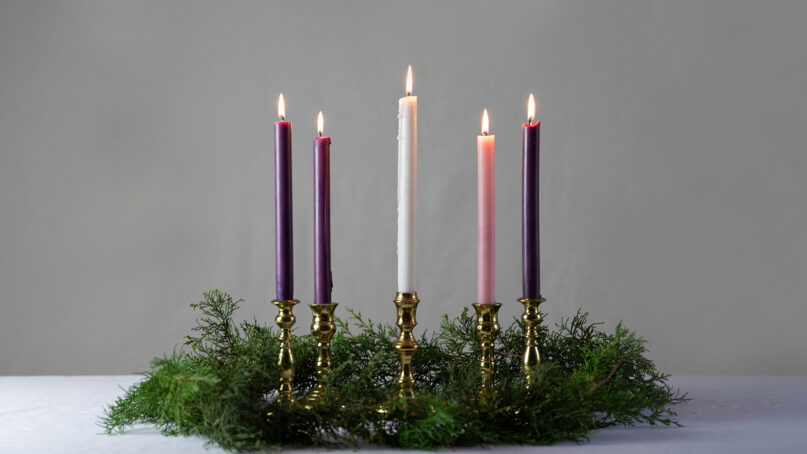(RNS) — The Advent season reminds Christians of the time between a promise and its realization. Coming from the Latin term “adventus,” for arrival, Advent traditionally refers to the four weeks leading up to Christmas in liturgical calendars. It is a time of hopeful anticipation, preparation and waiting for the celebration of the birth of Jesus Christ. But with the world witnessing unrelenting human rights abuses, atrocities and persecution, promises of “peace on earth” seem far away. What insights does Advent offer regarding our current circumstances?
Human rights advocates are experiencing a painful purgatory of in-betweenness. Revolutionary standards and benchmarks defending the human dignity have been achieved, but they are often honored in the breach. Certainly, the effort to defend persons from persecution has made unprecedented gains since the horrors of World War II. In fact, Dec. 10 recently celebrated Human Rights Day, commemorating the passage 75 years ago of the Universal Declaration of Human Rights. Rising from the ashes of the Holocaust, the Universal Declaration recognized individuals as rights holders and nations as duty bearers to protect those rights, reordering the relationship between people and their governments.
But since the passage of the landmark document, violations have continued. That’s not to say the Universal Declaration and the treaties that followed are worthless. Quite the contrary. These documents offer hope and chart a path to a brighter future — the Declaration and succeeding human rights conventions established universal standards from which to measure the actions of governments. Nations committed to behave in certain ways, and these standards provide proof when they fall short. While depressing reports from the Pew Center document how almost two-thirds of humanity live in countries that limit the free practice of faith, the Universal Declaration provides the benchmarks to measure those failures.
But however significant, these declarations cannot stop the hand of the oppressor from striking the weak or block Russian tanks or close Chinese labor camps. In this darkening environment, persons of all faith and none may find solace and strength in movements of Advent, often represented in the candles that emphasize hope, peace, joy and love. For centuries, people waited expectantly for a Messiah, not knowing when God would come in human form.
Advent reminds us of that long wait. Its rhythms encourage optimism for a day when promises are fulfilled. The Advent season teaches hope for a brighter tomorrow, which is what human rights defenders most need right now.
Hope is most important in dark times. The Rev. Dr. Martin Luther King Jr. spoke of hope in his final Sunday sermon on March 31, 1968, days before his murder. From the pulpit at the National Cathedral in Washington, D.C., he preached from Revelation 16, quoting, “Behold I make all things new; former things are passed away.”
He didn’t sugarcoat the state of affairs for African Americans in the late 1960s. The civil rights movement had scored significant victories for equal rights, but much work remained. “(W)e have difficult days ahead in the struggle for justice and peace, but I will not yield to a politic of despair,” Dr. King said. He stated directly, “I’m going to maintain hope …” Following, he prophetically announced, “We shall overcome because the arc of the moral universe is long but it bends toward justice.” He did not know when that day would come, and a week later tragedy would strike.
Dr. King concluded by saying, “With this faith we will be able to hew out of the mountain of despair the stone of hope.”
With the darkening climate for human rights and religious freedom globally, we must lean on Dr. King’s wisdom and not despair but cling to hope. Hope is powerful, especially at Christmastime. The carol “O Holy Night” speaks of the “thrill of hope,” exclaiming how a “weary world rejoices” at the break of “a new and glorious morn.” Christians celebrate the fulfillment of long hoped for promises with the birth of Christ. Hope inspires and encourages when strength begins to fail.
We are in “now and not yet” circumstances, the dark time before the dawn. We know what’s right, but wrongs keep happening. In a time of persecution, we should learn from Advent’s lesson of hopeful anticipation for the arrival of better times. The Advent season can serve as a source of spiritual resilience and a reminder that, even in challenging times, there is hope for a brighter future.
(Knox Thames served in a special envoy role for religious minorities at the U.S. State Department during the Obama and Trump administrations. He is a senior fellow at Pepperdine University. The views expressed in this commentary do not necessarily reflect those of Religion News Service.)





